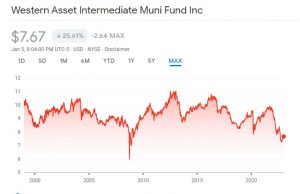State Bank of India (SBI) is the largest public sector bank in India and is headquartered in Mumbai. It was established in 1806 as Bank of Calcutta and later became Bank of Bombay and Bank of Bombay. In 1921, it merged with Bank of Bengal to form the Bank of Bengal and Bombay, which was later nationalized in 1955 and renamed as the State Bank of India.
SBI is a government-owned bank and is controlled by the Ministry of Finance. It provides a wide range of banking and financial services, including retail banking, corporate banking, investment banking, and asset management. SBI has a strong presence in India and also has operations in various countries around the world. It is listed on the Bombay Stock Exchange and the National Stock Exchange of India.
History of SBI
State Bank of India (SBI) has a long history dating back to 1806 when it was established as Bank of Calcutta. In 1809, it became Bank of Bombay and in 1818 it became Bank of Bombay and Bank of Bengal. These three banks were merged in 1921 to form the Bank of Bengal and Bombay, which was later nationalized in 1955 and renamed as the State Bank of India.
In the early years, SBI focused on providing banking and financial services to the people of India. It played a key role in the development of the Indian economy and helped to modernize the country’s financial system. In the 1980s, the bank started to expand its operations beyond India and opened offices in various countries around the world.
In the 1990s and 2000s, SBI continued to grow and expand its operations, and it became one of the largest banks in India. In recent years, the bank has focused on digital transformation and has introduced a wide range of digital products and services to meet the changing needs of its customers. Today, SBI is a global bank with operations in more than 20 countries around the world.
Growth of SBI
State Bank of India (SBI) has experienced significant growth since its establishment in 1806. The bank has consistently been one of the largest and most important financial institutions in India, and it has also expanded its operations globally.
One of the key factors in SBI’s growth has been its ability to adapt to changing market conditions and to provide a wide range of banking and financial services to its customers. The bank has a strong presence in India and has a diverse customer base, which has helped it to maintain its market position and to win new business.
SBI has also been successful in building strong relationships with its customers and in delivering high-quality services. The bank has a strong track record of managing its assets and liabilities effectively, which has helped it to maintain its financial stability and to generate consistent profits.
In recent years, SBI has focused on digital transformation and has introduced a wide range of digital products and services to meet the changing needs of its customers. This is expected to be a major driver of growth in the banking industry in the coming years, and SBI is well positioned to take advantage of this trend.
Growth of SBI share price
State Bank of India (SBI) is a publicly traded company listed on the Bombay Stock Exchange and the National Stock Exchange of India. Its share price has fluctuated over time, reflecting the company’s financial performance, market conditions, and investor sentiment.

In the early years of the company, SBI’s share price was relatively stable, but it started to rise significantly in the late 1990s as the bank experienced strong growth and increasing investor interest. In the 2000s, the company’s share price continued to rise, reaching a peak in 2007.
Since then, the share price has fluctuated somewhat, reflecting changes in the global economy and the banking industry. In general, the share price has trended upwards over the long term, reflecting the bank’s strong financial performance and growth.
It is important to note that the share price of a publicly traded company can be influenced by a wide range of factors, and past performance is not necessarily indicative of future results. It is always important for investors to carefully consider their own investment objectives and to consult with a financial professional before making any investment decisions.
Check the latest SBI share price here.
Should you invest in SBI shares?
There are several factors that you may want to consider when evaluating whether to invest in SBI’s shares, including the company’s financial performance, market conditions, and potential risks. Some other things to consider may include:
The company’s business model and growth prospects: SBI is the largest public sector bank in India and provides a wide range of banking and financial services. It has a strong presence in India and has a diverse customer base, which could make it an attractive investment opportunity.
Market conditions: The banking industry is subject to changes in interest rates, economic conditions, and regulatory environment, and these factors can impact the demand for SBI’s services. It is important to consider how the bank is positioned relative to its competitors and how it is likely to be impacted by changes in the market.
Potential risks: Investing in any company carries some level of risk. It is important to consider the potential risks associated with investing in SBI’s shares, such as market, credit, and liquidity risks, as well as the bank’s ability to manage these risks.
Again, it is important to carefully consider your own investment objectives and to consult with a financial professional before making any investment decisions. As every investor has a unique investing goal, all investment decisions should be taken at the investor’s own discretion after through research.
Be updated with the latest development related to SBI share price here.
Interested in how we think about the markets?
Read more: Zen And The Art Of Investing
Watch here: ELSS: Saving tax through mutual funds
Start investing through a platform that brings goal planning and investing to your fingertips. Visit kuvera.in to discover Direct Plans and Fixed Deposits and start investing today. #MutualFundSahiHai #KuveraSabseSahiHai










